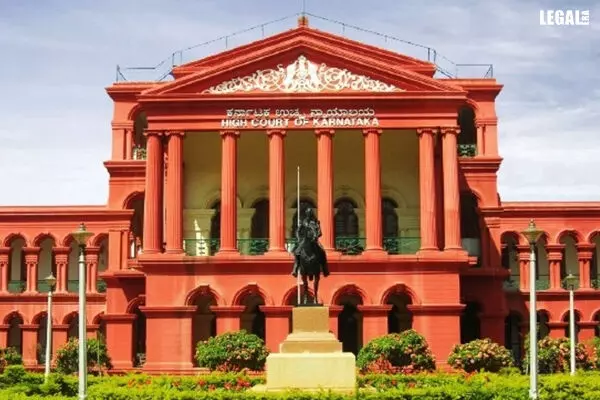- Home
- News
- Articles+
- Aerospace
- Agriculture
- Alternate Dispute Resolution
- Banking and Finance
- Bankruptcy
- Book Review
- Bribery & Corruption
- Commercial Litigation
- Competition Law
- Conference Reports
- Consumer Products
- Contract
- Corporate Governance
- Corporate Law
- Covid-19
- Cryptocurrency
- Cybersecurity
- Data Protection
- Defence
- Digital Economy
- E-commerce
- Employment Law
- Energy and Natural Resources
- Entertainment and Sports Law
- Environmental Law
- FDI
- Food and Beverage
- Health Care
- IBC Diaries
- Insurance Law
- Intellectual Property
- International Law
- Know the Law
- Labour Laws
- Litigation
- Litigation Funding
- Manufacturing
- Mergers & Acquisitions
- NFTs
- Privacy
- Private Equity
- Project Finance
- Real Estate
- Risk and Compliance
- Technology Media and Telecom
- Tributes
- Zoom In
- Take On Board
- In Focus
- Law & Policy and Regulation
- IP & Tech Era
- Viewpoint
- Arbitration & Mediation
- Tax
- Student Corner
- AI
- ESG
- Gaming
- Inclusion & Diversity
- Law Firms
- In-House
- Rankings
- E-Magazine
- Legal Era TV
- Events
- News
- Articles
- Aerospace
- Agriculture
- Alternate Dispute Resolution
- Banking and Finance
- Bankruptcy
- Book Review
- Bribery & Corruption
- Commercial Litigation
- Competition Law
- Conference Reports
- Consumer Products
- Contract
- Corporate Governance
- Corporate Law
- Covid-19
- Cryptocurrency
- Cybersecurity
- Data Protection
- Defence
- Digital Economy
- E-commerce
- Employment Law
- Energy and Natural Resources
- Entertainment and Sports Law
- Environmental Law
- FDI
- Food and Beverage
- Health Care
- IBC Diaries
- Insurance Law
- Intellectual Property
- International Law
- Know the Law
- Labour Laws
- Litigation
- Litigation Funding
- Manufacturing
- Mergers & Acquisitions
- NFTs
- Privacy
- Private Equity
- Project Finance
- Real Estate
- Risk and Compliance
- Technology Media and Telecom
- Tributes
- Zoom In
- Take On Board
- In Focus
- Law & Policy and Regulation
- IP & Tech Era
- Viewpoint
- Arbitration & Mediation
- Tax
- Student Corner
- AI
- ESG
- Gaming
- Inclusion & Diversity
- Law Firms
- In-House
- Rankings
- E-Magazine
- Legal Era TV
- Events
Karnataka High Court Declares 2007 KVAT Amendment Unconstitutional

Karnataka High Court Declares 2007 KVAT Amendment Unconstitutional
The Karnataka High Court has struck down an amendment to the Karnataka Value Added Tax Act that encouraged businesses to make purchases outside the state due to discriminatory taxation that incentivised businesses to source goods from outside the state.
A division bench of Justices PS Dinesh Kumar and CM Poonacha set aside the 2007 amendment to the Karnataka Value Added Tax Act. This amendment inserted clause 15(5)(e), which the Court deemed discriminatory and detrimental to the state's economic welfare. The judges reasoned that the amendment encouraged businesses to make purchases from outside the state, thereby harming local commerce.
The 2007 amendment, introducing clause 15(5)(e) to the Karnataka Value Added Tax Act, had a retrospective effect from April 1, 2006. While a single judge bench previously upheld the section's validity, it deemed it prospective, not retroactive. Businesses contesting the amendment filed appeals to challenge this ruling before the High Court.
The amendment to Section 15(5)(e) stipulates that if a dealer under the composition scheme buys goods from an unregistered dealer, they must pay the tax on that purchase in addition to their regular composition tax, the court noted. Businesses argued that they were forced to pay this additional tax when buying from unregistered dealers within Karnataka.
However, if businesses purchased goods from outside Karnataka, they were not subjected to this additional tax. The state argued that the clause aimed to incentivise unregistered dealers within Karnataka to register under the KVAT. But the High Court countered that the state should focus on enforcing the KVAT through its officers, rather than penalising registered dealers. "We find merit in the argument of the assessees," the judgment stated, "as the amendment ultimately aims to encourage purchases from registered dealers."
Ultimately, this approach will achieve the opposite of its intended purpose, encouraging purchases from dealers outside the state. Since only goods purchased within Karnataka are taxable under the amended clause, the desired objective of increasing registrations among unregistered dealers remains unfulfilled. Moreover, the state already possesses ample resources, including Tax Inspectors and Flying Squads, to effectively identify and register unregistered dealers (URDs). Penalising registered dealers is, therefore, an unnecessary burden and an ineffective strategy, the Court observed.
Upholding a series of appeals, the High Court declared Section 15(5)(e) of the Karnataka Value Added Tax Act unconstitutional.



